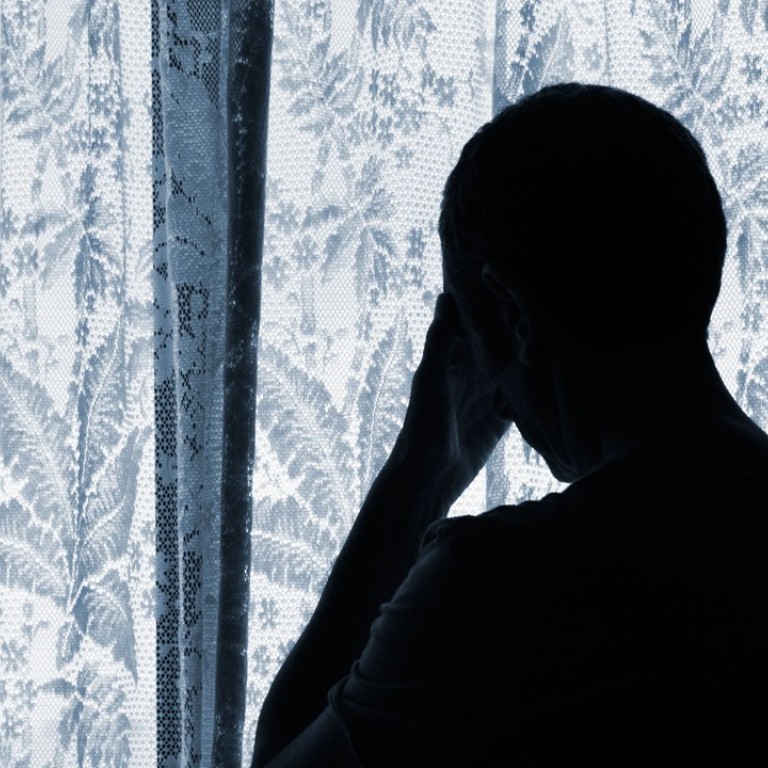
Nearly 75 per cent of Hong Kong public polled think schizophrenia is personality flaw, with half believing most patients are violent
Doctors and sufferers call for more awareness and government support to fight highly misunderstood mental illness
Nearly 75 per cent of the public in Hong Kong mistakenly assume schizophrenia is caused by psychological or personality problems, with almost half believing most patients have violent tendencies, a study has shown.
Doctors and patients warned such misconceptions could affect sufferers and urged the government to allocate more resources to improve treatment and education on the illness.
Experts have said schizophrenia is a disorder from chemical imbalances in the brain that affect thoughts, feelings and behaviour, and in severe cases, sufferers may seem to be out of touch with reality.
The findings were released on Sunday, with the poll conducted by the Data Analytics and Survey Research Centre of Shue Yan University and commissioned by four concern groups.

A total of 1,004 questionnaire results were received from members of the public and 317 from those suffering from schizophrenia.
One of the results showed a worrying trend – 72.3 per cent of the public and 56.8 per cent of patients thought schizophrenia was caused by psychological or personality problems.
Why mental health awareness should start in Hong Kong schools and companies
Dr Michael Wong Ming-cheuk, president of the Hong Kong Association of Psychosocial Rehabilitation, said while the cause of schizophrenia was not entirely clear, studies found it could be hereditary.

“A lot of research has found the prevalence of the illness in families to be much higher than that of the general population,” he said.
Wong added environmental factors such as stress could also be a catalyst to bring about the onset of schizophrenia.
An equally concerning result from the study showed 43.5 per cent of the public thought most schizophrenia patients had violent tendencies.
“Actually, only a small number of patients have violent tendencies, and these patients will only have such behaviour if their illness is not treated properly and they come under the influence of symptoms such as hallucinations,” Wong said.
Actually, only a small number of patients have violent tendencies ... and only if their illness is not treated properly
The four groups behind the study – the Hong Kong Association of Psychosocial Rehabilitation, Pharmaceutical Care Foundation, Alliance of Ex-mentally Ill of Hong Kong and Hong Kong FamilyLink Mental Health Advocacy Association – also noted the lack of understanding when it came to treatment for schizophrenia.
Findings showed 51.7 per cent of the public wrongly assumed psychotherapy and behavioural therapy could replace medication.
Wong explained schizophrenia was caused by chemical imbalances in the brain and medication could target such conditions.
Some 60 per cent of respondents also said they did not know that each relapse for a sufferer meant further damage to the brain.
Largest ever mental health survey to involve at least 15,000 people, with focus on young
The survey also found that about half of members of the public polled and 38.8 per cent of patients wrongly believed injections contained higher drug dosages and more severe side effects, compared to oral medication.
Ewan So Yiu-wah, director of the Pharmaceutical Care Foundation, noted injections or oral medication were not related to the severity of a patient’s illness.
“The biggest difference is that you only require an injection every four weeks or only four in a year, compared to oral medication on a daily basis,” he said, adding the former could lower the risk of patients halting their medication, leading to a relapse. So said a side effect from either form of treatment was muscular stiffness.
Wong Yiu-keung, 60, was diagnosed with schizophrenia in 1980 after the successive deaths of his loved ones.
One in six people in city suffers from mental illness: how Hong Kong can change its outlook
“In my early days of suffering from the illness, my family and friends always told me I was like this because I was too stubborn,” he said.
Wong said he tried to cut down on medication in 2010, but that led to hallucinations, including believing that he was being stalked, and hearing a voice asking him to jump off a building.
With more than 48,000 people suffering from schizophrenia in Hong Kong, the groups called on the government to increase resources and support for patients, as well as education for the general public.
They also urged the government to allow patients to be given access directly to a more costly second-generation injection, which has fewer side effects. At present only those not reacting well to the first-generation jabs are given the new one.

